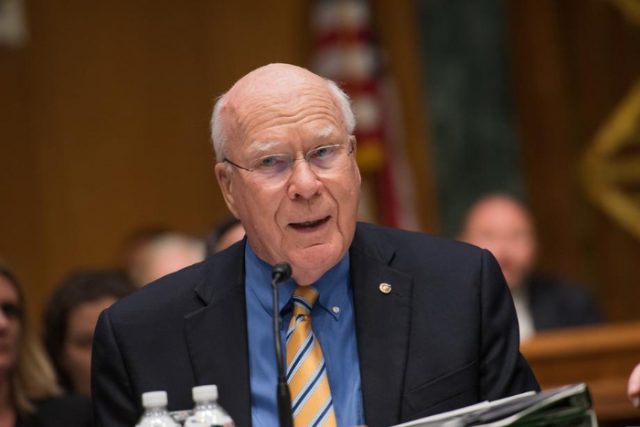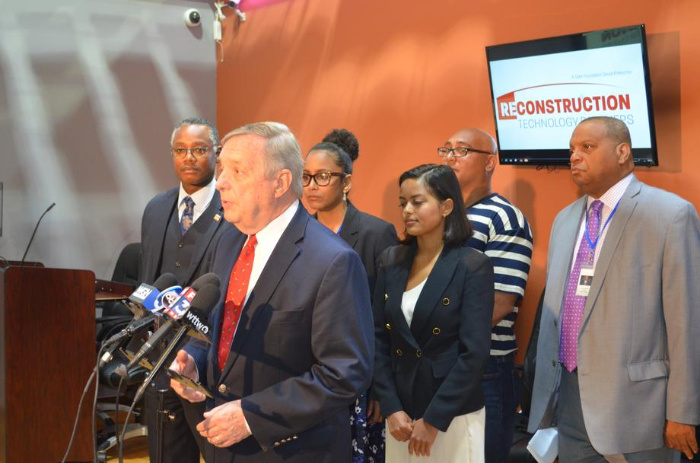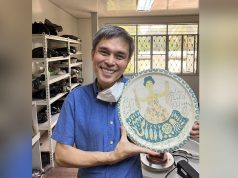
Senate President Vicente Sotto III decried the proposal of their American counterparts to impose a travel ban on officials involved in Sen. Leila de Lima‘s detention.
Last week, U.S. Sens. Richard Durbin and Patrick Leahy filed an amendment to a bill seeking to prohibit Philippine officials tagged in De Lima’s indictment from entering the United States, claiming it is “politically motivated.”
Approved by the U.S. Senate appropriations committee, the specific provision on the bill reads:
“Prohibition on Entry–Section 7022(c) of this act shall be applied to officials of the government of the Philippines about whom the secretary of state has credible information [that they] have been involved in the wrongful imprisonment of Sen. Leila de Lima, who was arrested in 2017 on politically motivated charges.”
Before the latest proposal, Leahy and other senators filed a resolution in April earlier this year that urged the Philippine government to release De Lima and condemn the persecution of human rights defenders and detention of political prisoners in the country.

Sotto and other legislators slammed the possibility of a travel ban, perceiving it as “meddling” in the country’s internal state of affairs.
“Ano kaya pakiramdam ng senador na ‘yun kung mayroon mag-file ng resolution dito na sabihin na huwag papasukin sa Pilipinas lahat ng mag-iimpeach kay Trump? Ano kaya sasabihin nun? Pakialamero eh,” Sotto said.
He also called them “racists” and claimed that the American legislators may still think the Philippines is still under Commonwealth rule, a specific period in the country’s history where the United States controlled some of the Philippine government’s affairs under President Manuel Quezon.
“U.S. Senate ban is a racist, white supremacist action that considers Filipinos as their brown wards,” Sotto said on Twitter.
“I am not for or against Senator De Lima. As I’ve said, she’s innocent until proven guilty. But you cannot have a U.S. senator judge the case,” he added.
Sotto’s sentiments were echoed by his fellow colleagues Sens. Bong Go and Richard Gordon.
The American senators’ proposal was also condemned by House minority leader Rep. Benny Abante (Manila 6th District) and presidential spokesperson Salvador Panelo.
De Lima has been detained since February 2017 on what critics call “trumped-up” charges in connection with the illegal drug trade in the state penitentiary during her stint as justice secretary.
Despite this, she received the prestigious “Prize for Freedom” award from Liberal International for her “exceptional contribution to the advancement of human rights” in the country.
The organization recognized her efforts to condemn the administration’s bloody war on drugs which has killed thousands of mostly impoverished Filipinos since its implementation in mid-2016.
U.S. is entitled to impose such sanctions
What is largely unmentioned, however, is that the United States, as an influential economy that aims to promote universal values such as human rights, can do so legally.
Some Filipinos, including Rep. Ruffino “Ruffy” Biazon (Muntinlupa), pointed out the existence of a law in the U.S. allowing the government to block the entry of certain individuals or freeze their assets in American banks.
“Called the Global Magnitsky Act, the law authorizes the US Government to sanction by freezing assets or ban entry into the US, persons it sees as human rights offenders,” Biazon wrote on Twitter.
Called the Global Magnitsky Act, the law authorizes the US Government to sanction by freezing assets or ban entry into the US, persons it sees as human rights offenders. It was signed into law by President Barack Obama in 2012. Since then other countries have passed similar laws.
— Ruffy Biazon (@ruffybiazon) September 29, 2019
Another Twitter user shared links in response to Sotto’s remarks reported by a local news outlet.
“Doesn’t kill to read the Global Magnitsky Act, Sotto. Had you been the least bit aware, your comments would’ve been more relevant and not on the ‘Eat Bulaga’ level,” the user wrote.
The Global Magnitsky Act was passed in 2016 which allows the American government to “institute a travel ban and asset freeze on human rights violators in any country,” according to Washington Post.
Formally called the Global Magnitsky Human Rights Accountability Act, it gives the American president power to block or revoke travel visas of foreigners and be sanctioned under the following conditions, as cited by the Human Rights Watch:
- If they are responsible for or acted as an agent for someone responsible for ‘extrajudicial killings, torture, or other gross violations of internationally recognized human rights’ or
- If they are government officials or senior associates of government officials complicit in ‘acts of significant corruption.’
Any official can be sanctioned under the law, from senior public officials to low-level officers.
The law also allows the American government to seize their properties in U.S. soil, as well as prohibit them from performing transactions with American banks and companies.
It also incentivizes foreign governments to further improve their accountability mechanisms.
The Global Magnitsky Act has sanctioned over 100 human rights violators, corrupt actors and similar entities from 17 countries, according to an independent democracy watchdog organization.









